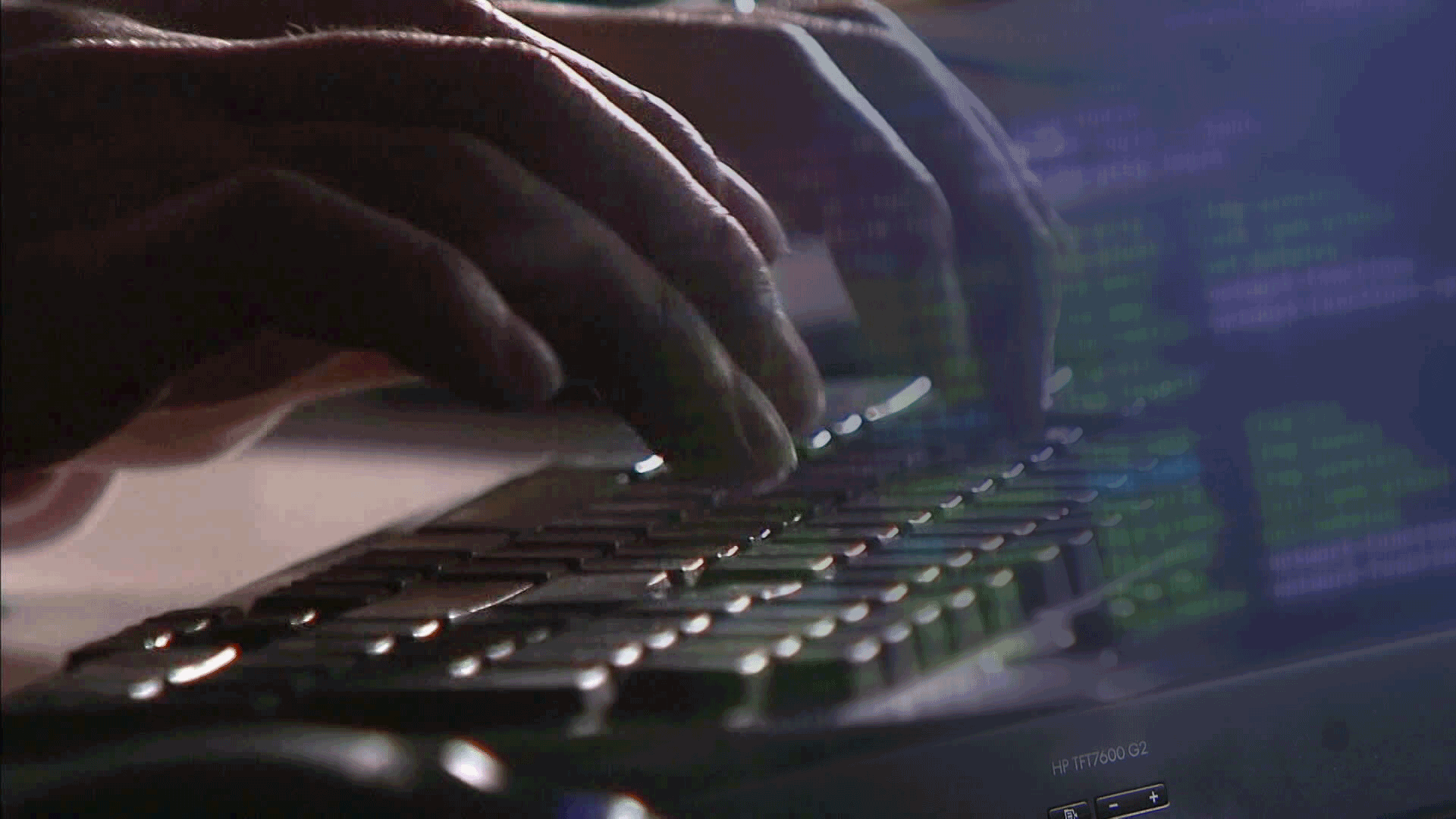[Anchor]
Following Yes24, the 'ransomware' attack that also targeted Seoul Guarantee Insurance has recently evolved into a sort of industry and is rampant.
It is attacking companies worldwide and demanding large sums of money.
Is there no way to stop it? Reporter Kang Pu-reun has investigated.
[Report]
Ransomware attacks involve implanting malicious code to take over servers, stealing and encrypting core data.
They also delete the company's backup data and demand a hefty ransom.
About a month after the attack on Yes24, SGI Seoul Guarantee Insurance has now become the target of hackers.
The recent surge in ransomware attacks is closely related to the emergence of specialized organizations that create and sell related programs.
Using purchased programs allows even less skilled hackers to easily carry out attacks.
The time it takes to execute a hack has significantly decreased to about four days, supporting this trend.
The increasingly sophisticated methods of hackers are also cited as a major reason.
[Lee Hyung-taek/Head of the Korea Ransomware Response Center: "By reducing time, cutting costs, and increasing evasion rates, the success rate has become extremely high."]
Last year, 195 cases of ransomware attacks were reported in South Korea, and according to IBM data, they account for over 10% of global security incidents.
Experts suggest that a key countermeasure is to separate backup servers, which are essential for recovery.
[Lee Dong-geun/Head of the Digital Threat Response Division, Korea Internet & Security Agency: "It seems appropriate to safely back up and establish a separate backup system. Operating a backup system managed through a separate authentication system..."]
Currently, the proportion of security investment compared to the IT budget of major companies in our country is around 6% on average.
The government's budget for research and development related to cybersecurity is also limited to around 100 billion won.
This is KBS News, Kang Pu-reun.
Following Yes24, the 'ransomware' attack that also targeted Seoul Guarantee Insurance has recently evolved into a sort of industry and is rampant.
It is attacking companies worldwide and demanding large sums of money.
Is there no way to stop it? Reporter Kang Pu-reun has investigated.
[Report]
Ransomware attacks involve implanting malicious code to take over servers, stealing and encrypting core data.
They also delete the company's backup data and demand a hefty ransom.
About a month after the attack on Yes24, SGI Seoul Guarantee Insurance has now become the target of hackers.
The recent surge in ransomware attacks is closely related to the emergence of specialized organizations that create and sell related programs.
Using purchased programs allows even less skilled hackers to easily carry out attacks.
The time it takes to execute a hack has significantly decreased to about four days, supporting this trend.
The increasingly sophisticated methods of hackers are also cited as a major reason.
[Lee Hyung-taek/Head of the Korea Ransomware Response Center: "By reducing time, cutting costs, and increasing evasion rates, the success rate has become extremely high."]
Last year, 195 cases of ransomware attacks were reported in South Korea, and according to IBM data, they account for over 10% of global security incidents.
Experts suggest that a key countermeasure is to separate backup servers, which are essential for recovery.
[Lee Dong-geun/Head of the Digital Threat Response Division, Korea Internet & Security Agency: "It seems appropriate to safely back up and establish a separate backup system. Operating a backup system managed through a separate authentication system..."]
Currently, the proportion of security investment compared to the IT budget of major companies in our country is around 6% on average.
The government's budget for research and development related to cybersecurity is also limited to around 100 billion won.
This is KBS News, Kang Pu-reun.
■ 제보하기
▷ 카카오톡 : 'KBS제보' 검색, 채널 추가
▷ 전화 : 02-781-1234, 4444
▷ 이메일 : kbs1234@kbs.co.kr
▷ 유튜브, 네이버, 카카오에서도 KBS뉴스를 구독해주세요!
- Ransomware: Causes and Fixes
-
- 입력 2025-07-17 01:23:04

[Anchor]
Following Yes24, the 'ransomware' attack that also targeted Seoul Guarantee Insurance has recently evolved into a sort of industry and is rampant.
It is attacking companies worldwide and demanding large sums of money.
Is there no way to stop it? Reporter Kang Pu-reun has investigated.
[Report]
Ransomware attacks involve implanting malicious code to take over servers, stealing and encrypting core data.
They also delete the company's backup data and demand a hefty ransom.
About a month after the attack on Yes24, SGI Seoul Guarantee Insurance has now become the target of hackers.
The recent surge in ransomware attacks is closely related to the emergence of specialized organizations that create and sell related programs.
Using purchased programs allows even less skilled hackers to easily carry out attacks.
The time it takes to execute a hack has significantly decreased to about four days, supporting this trend.
The increasingly sophisticated methods of hackers are also cited as a major reason.
[Lee Hyung-taek/Head of the Korea Ransomware Response Center: "By reducing time, cutting costs, and increasing evasion rates, the success rate has become extremely high."]
Last year, 195 cases of ransomware attacks were reported in South Korea, and according to IBM data, they account for over 10% of global security incidents.
Experts suggest that a key countermeasure is to separate backup servers, which are essential for recovery.
[Lee Dong-geun/Head of the Digital Threat Response Division, Korea Internet & Security Agency: "It seems appropriate to safely back up and establish a separate backup system. Operating a backup system managed through a separate authentication system..."]
Currently, the proportion of security investment compared to the IT budget of major companies in our country is around 6% on average.
The government's budget for research and development related to cybersecurity is also limited to around 100 billion won.
This is KBS News, Kang Pu-reun.
Following Yes24, the 'ransomware' attack that also targeted Seoul Guarantee Insurance has recently evolved into a sort of industry and is rampant.
It is attacking companies worldwide and demanding large sums of money.
Is there no way to stop it? Reporter Kang Pu-reun has investigated.
[Report]
Ransomware attacks involve implanting malicious code to take over servers, stealing and encrypting core data.
They also delete the company's backup data and demand a hefty ransom.
About a month after the attack on Yes24, SGI Seoul Guarantee Insurance has now become the target of hackers.
The recent surge in ransomware attacks is closely related to the emergence of specialized organizations that create and sell related programs.
Using purchased programs allows even less skilled hackers to easily carry out attacks.
The time it takes to execute a hack has significantly decreased to about four days, supporting this trend.
The increasingly sophisticated methods of hackers are also cited as a major reason.
[Lee Hyung-taek/Head of the Korea Ransomware Response Center: "By reducing time, cutting costs, and increasing evasion rates, the success rate has become extremely high."]
Last year, 195 cases of ransomware attacks were reported in South Korea, and according to IBM data, they account for over 10% of global security incidents.
Experts suggest that a key countermeasure is to separate backup servers, which are essential for recovery.
[Lee Dong-geun/Head of the Digital Threat Response Division, Korea Internet & Security Agency: "It seems appropriate to safely back up and establish a separate backup system. Operating a backup system managed through a separate authentication system..."]
Currently, the proportion of security investment compared to the IT budget of major companies in our country is around 6% on average.
The government's budget for research and development related to cybersecurity is also limited to around 100 billion won.
This is KBS News, Kang Pu-reun.
이 기사가 좋으셨다면
-
좋아요
0
-
응원해요
0
-
후속 원해요
0
















이 기사에 대한 의견을 남겨주세요.